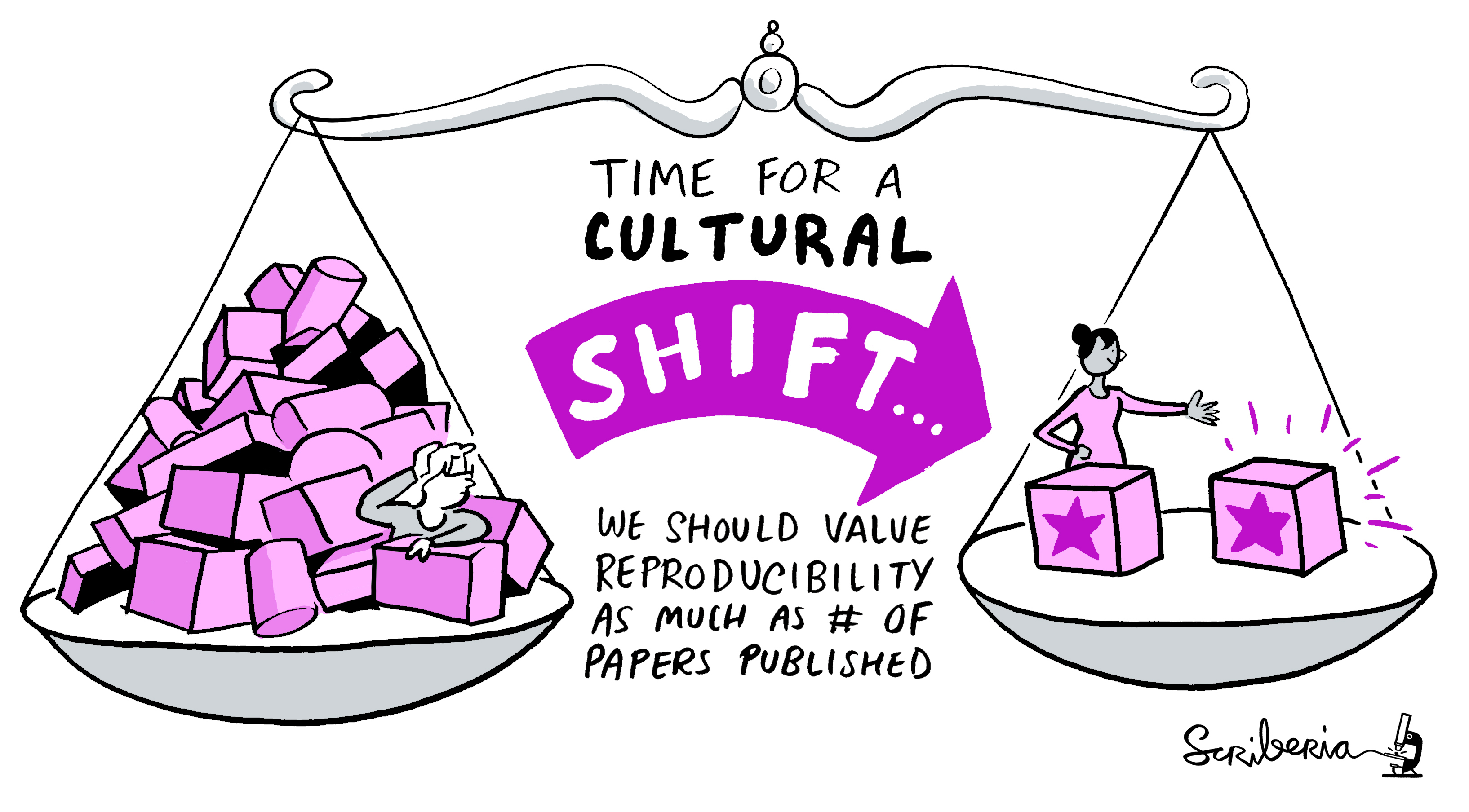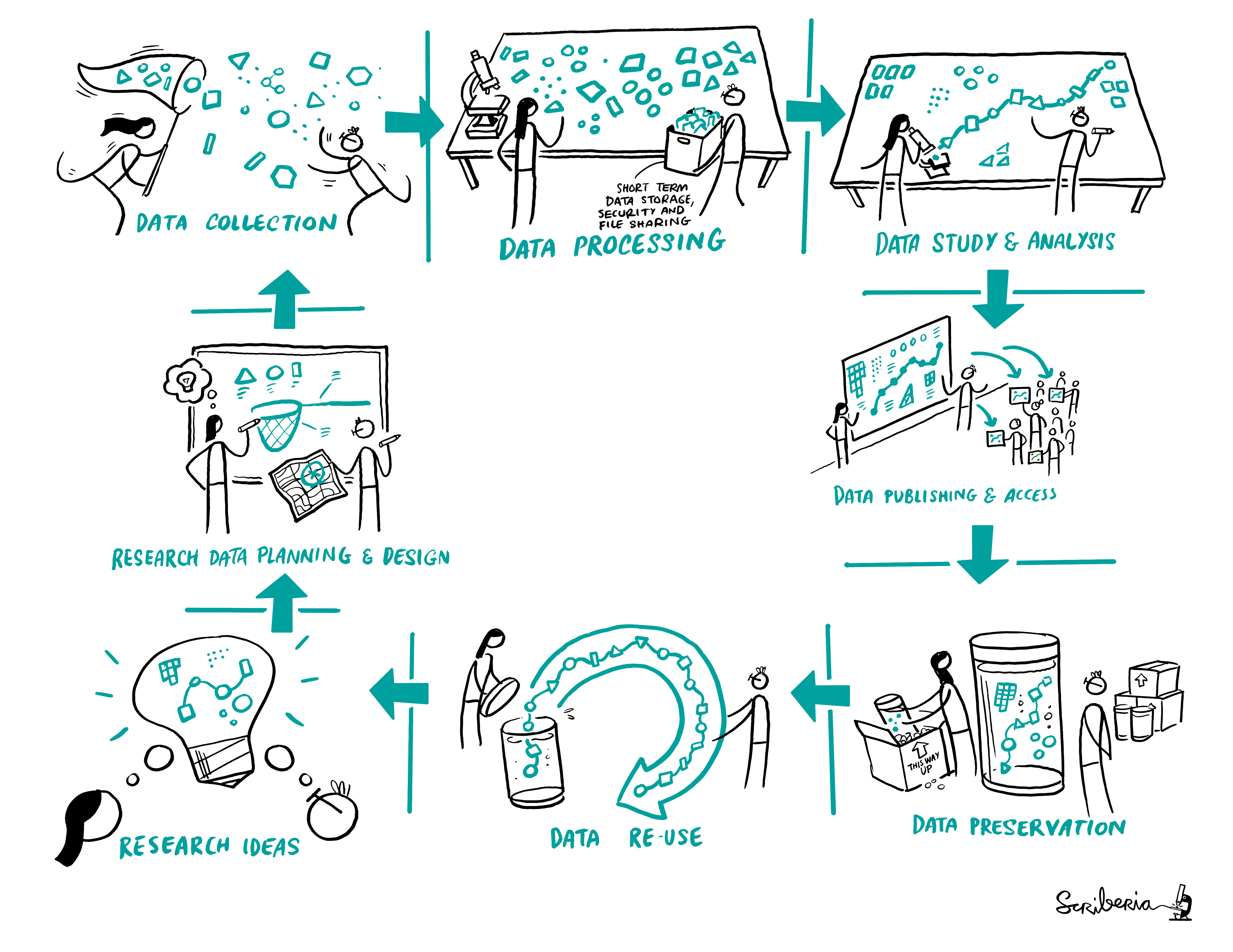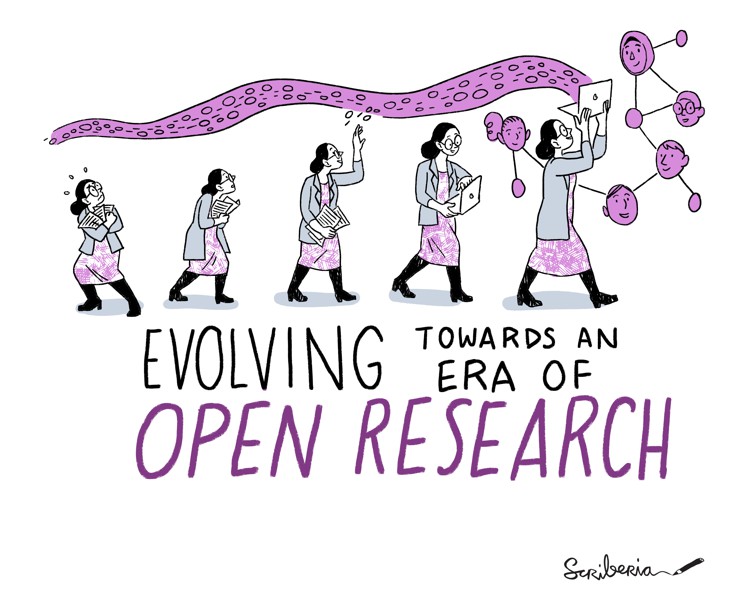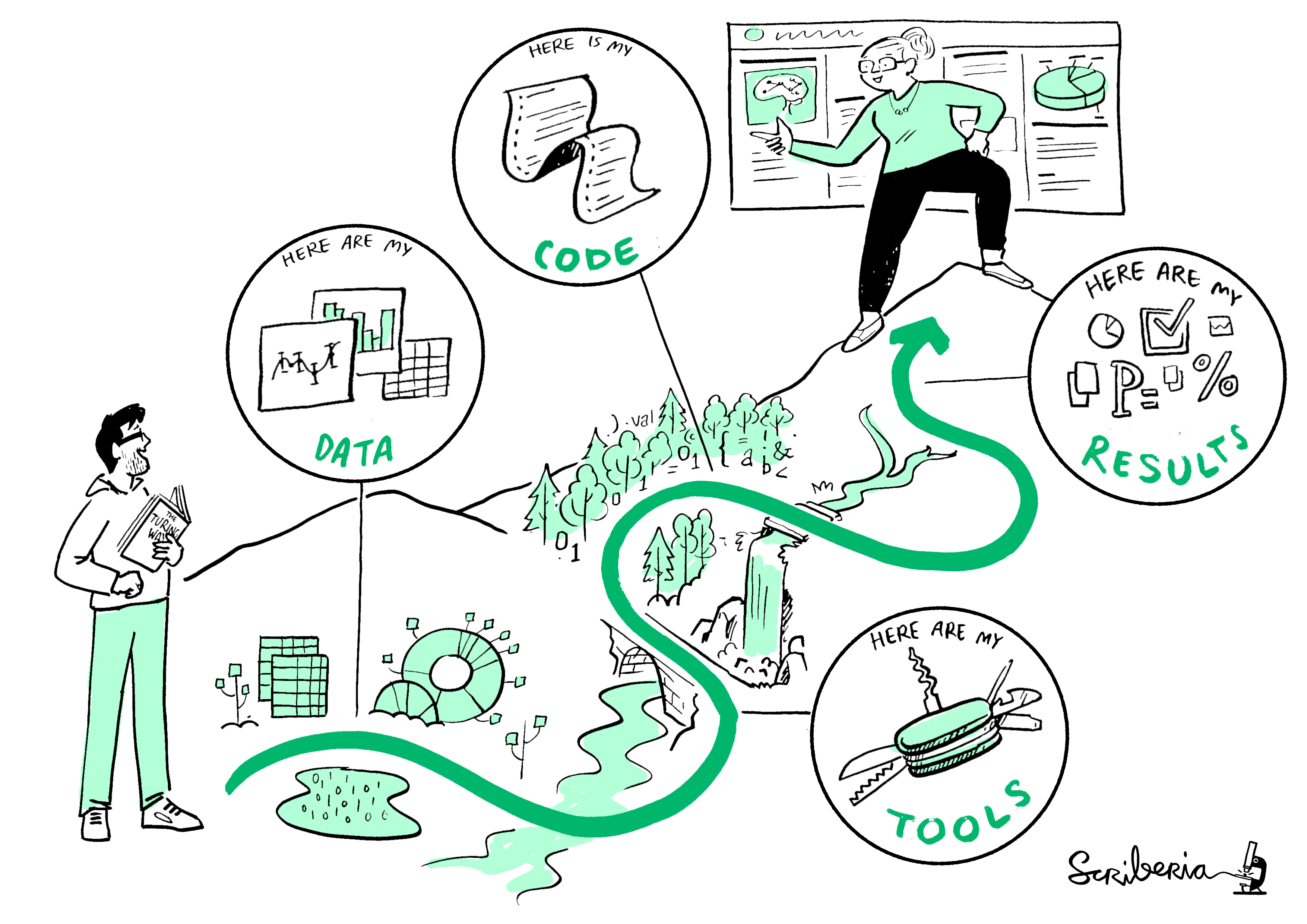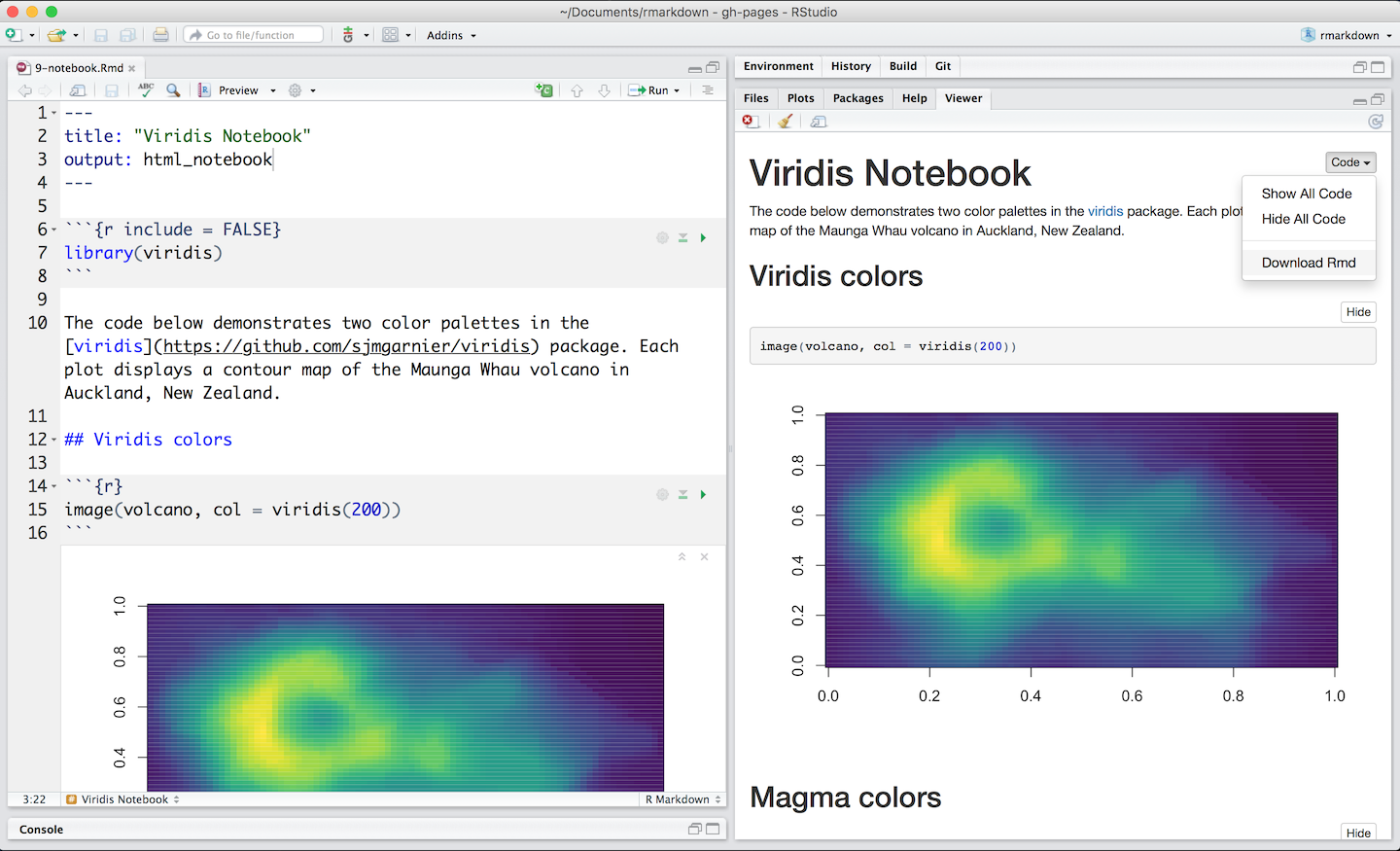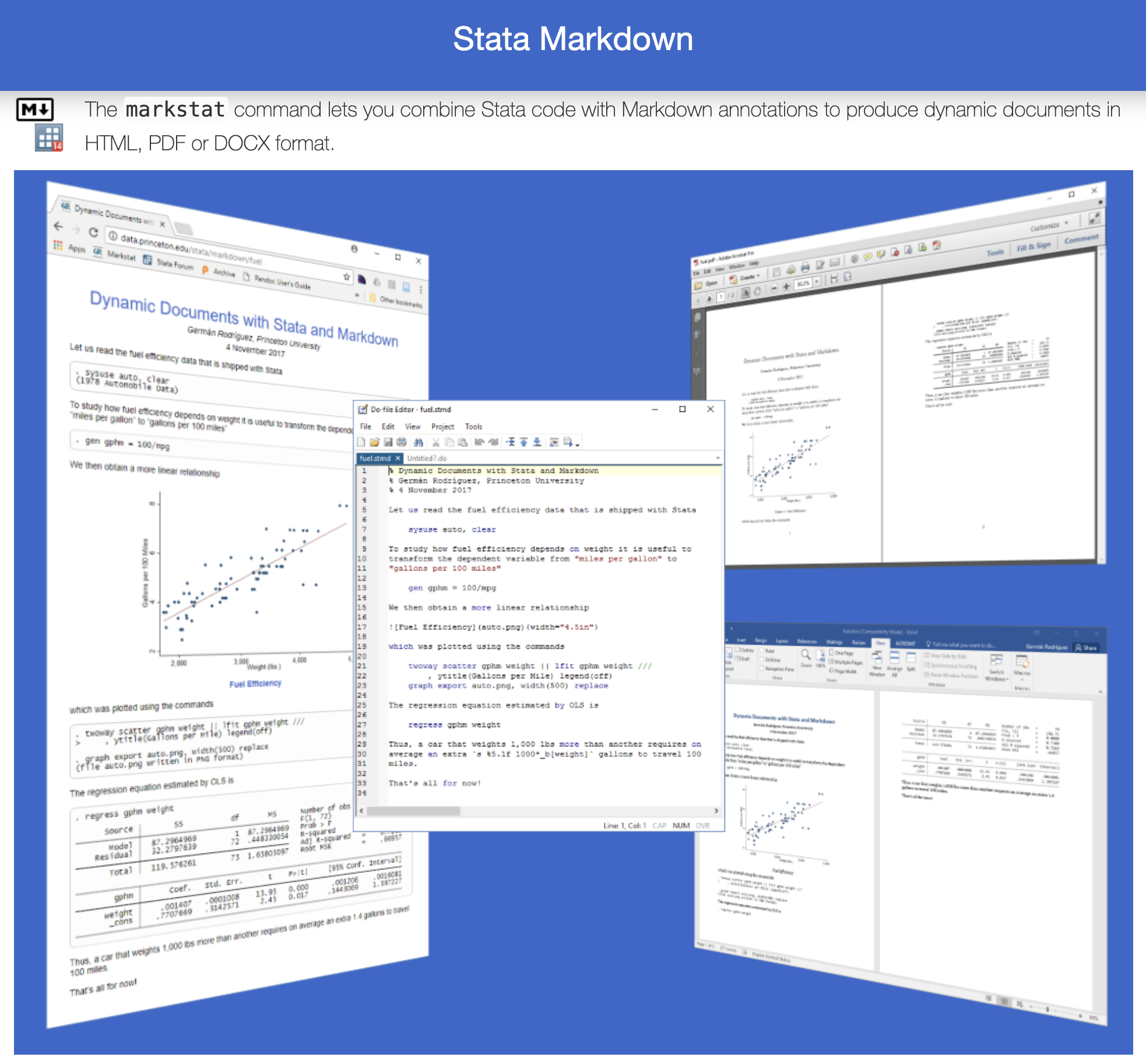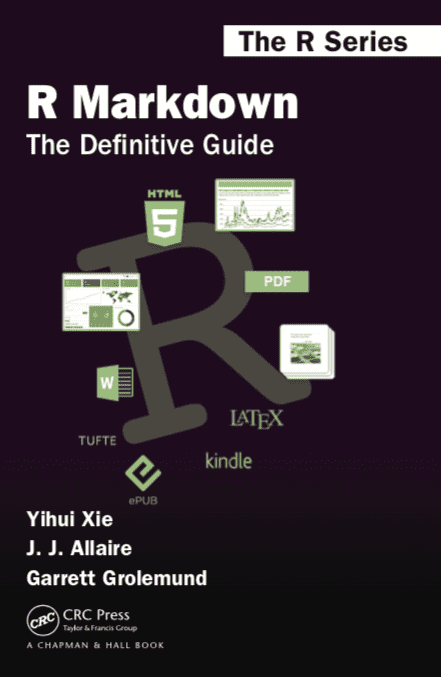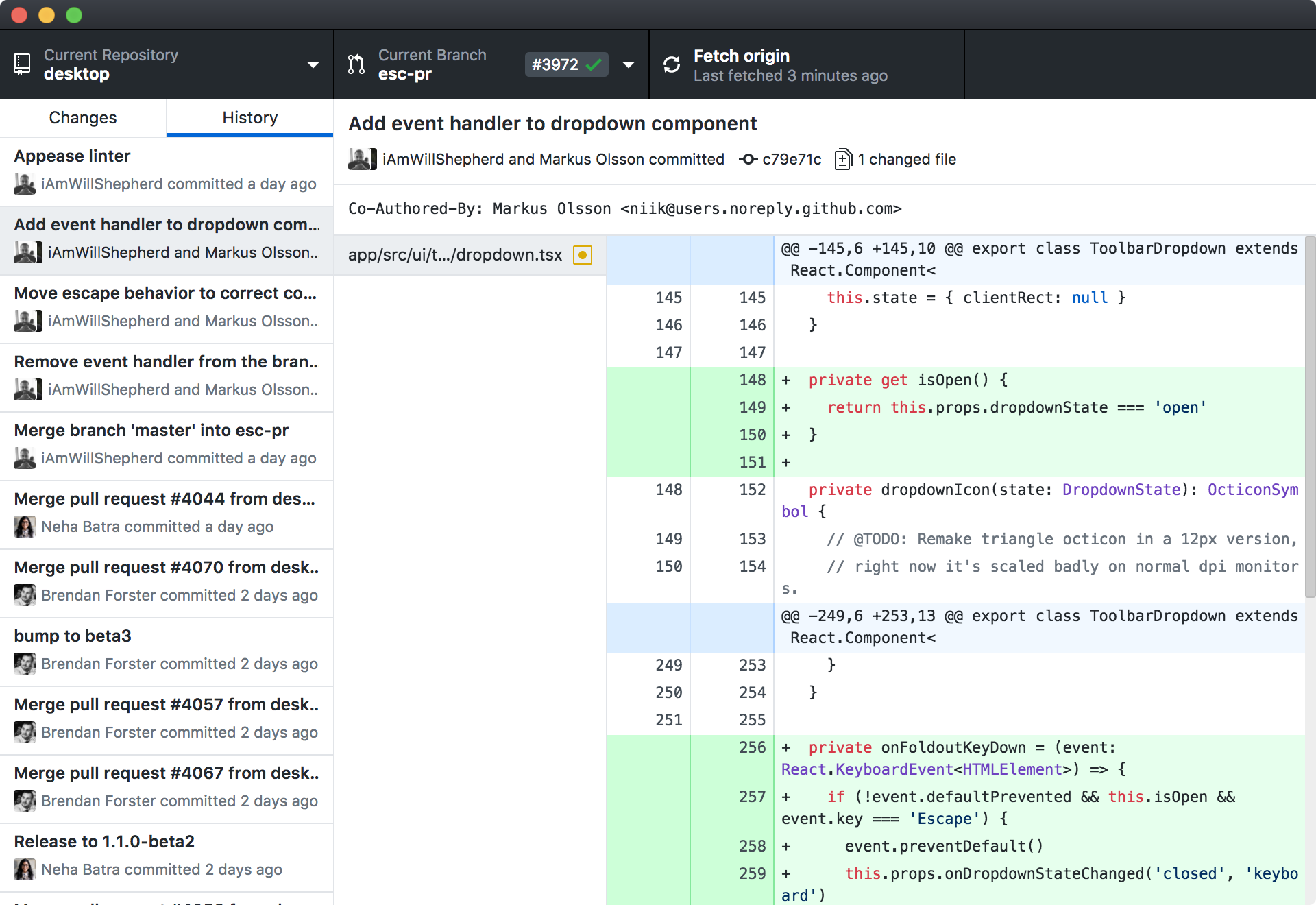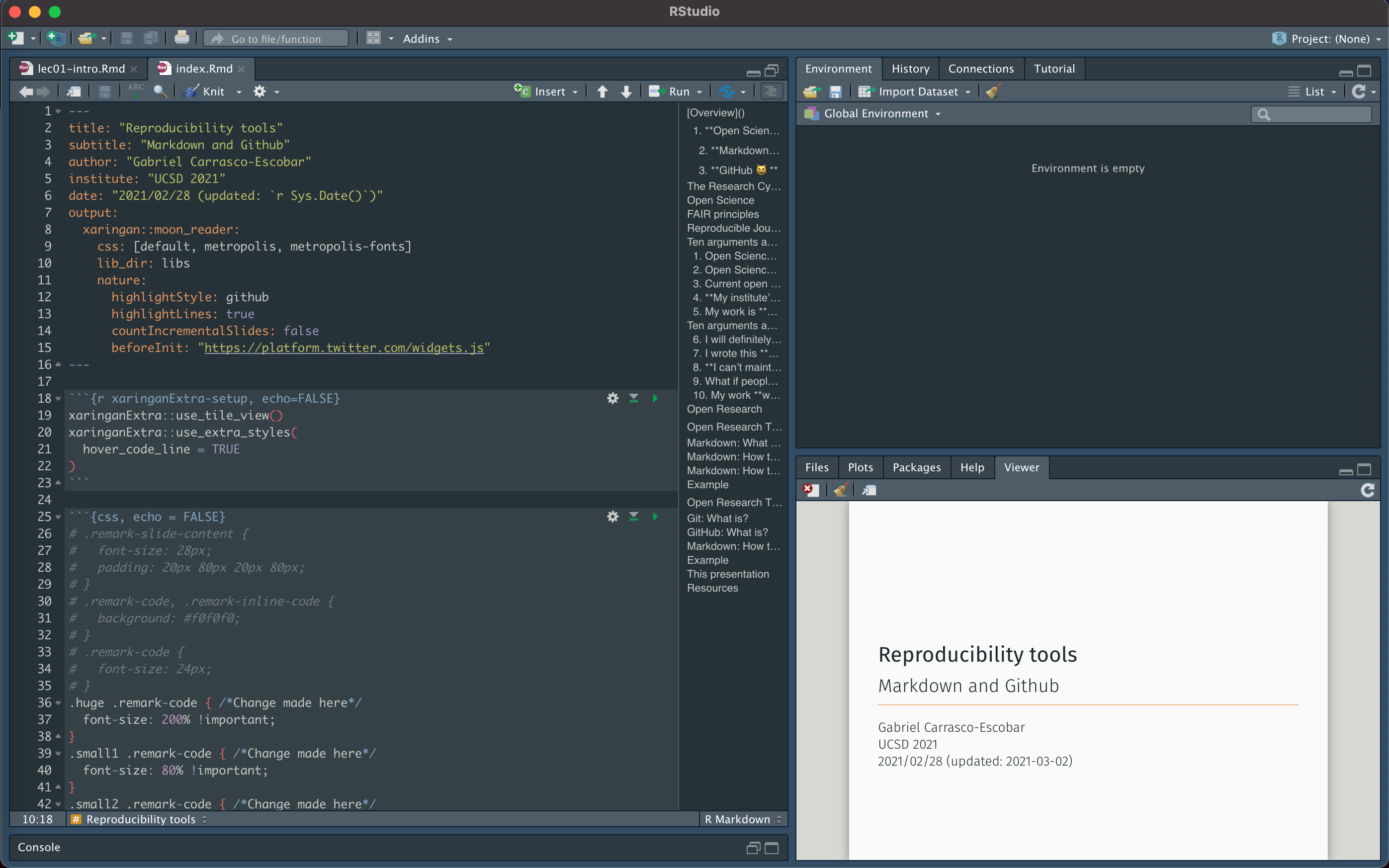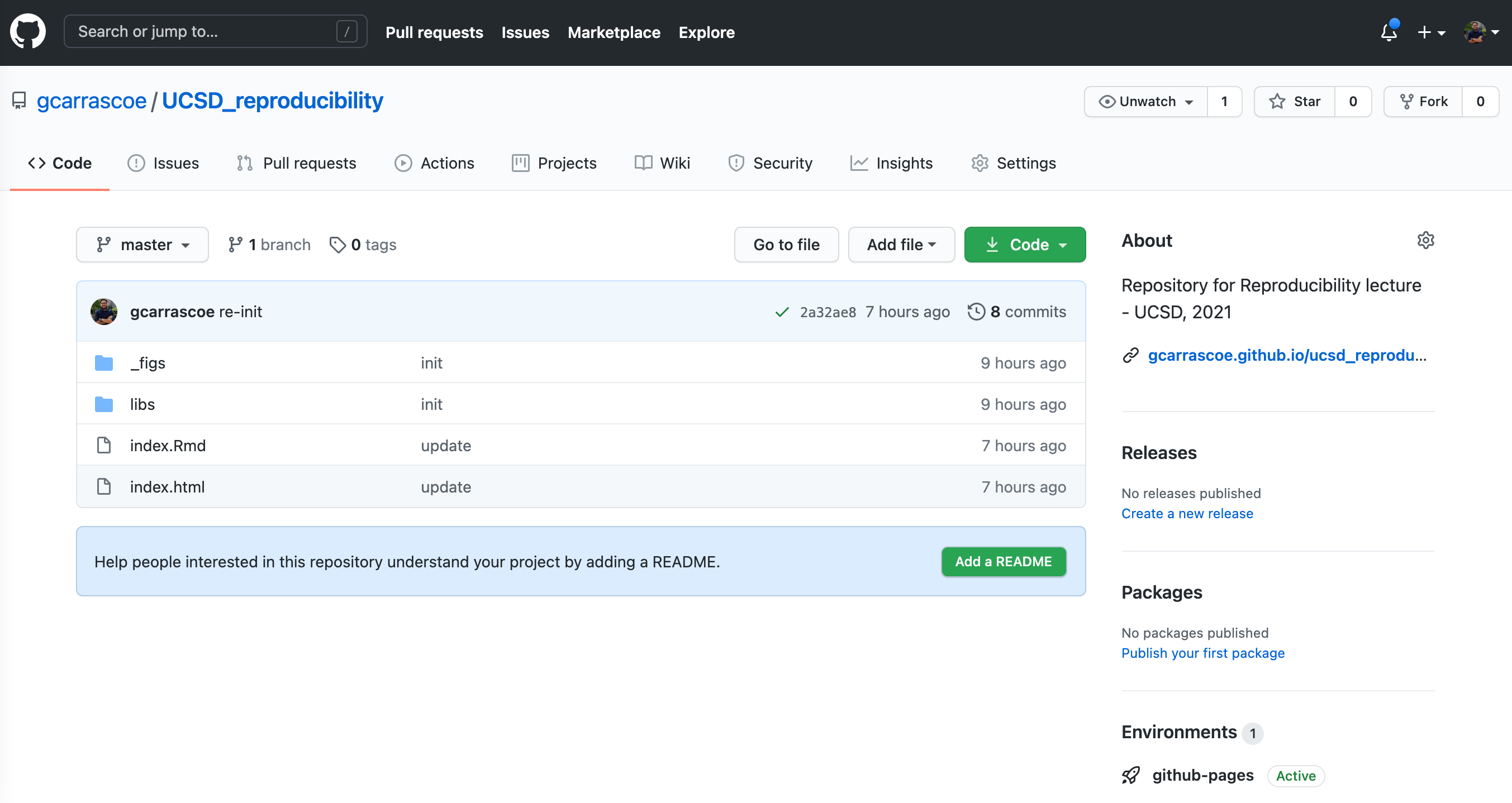Reproducibility tools
Markdown and Github
Gabriel Carrasco-Escobar
UCSD 2021
2021/02/28 (updated: 2021-03-03)
"When authors say they will "make data available upon request" '#OpenScienceGif
— Heidi Seibold (@HeidiBaya) 7 December 2020
Open Science
- There is no formal definition of open science.
Efforts by researchers, governments, research funding agencies or the scientific community itself to make the primary outputs of publicly funded research results – publications and the research data – publicly accessible in digital format with no or minimal restriction as a means for accelerating research; these efforts are in the interest of enhancing transparency and collaboration, and fostering innovation.
FAIR principles
In 2016, the FAIR Guiding Principles for scientific data management and stewardship were published in Scientific Data.
The authors intended to provide guidelines to improve the Findability, Accessibility, Interoperability, and Reuse of digital assets.
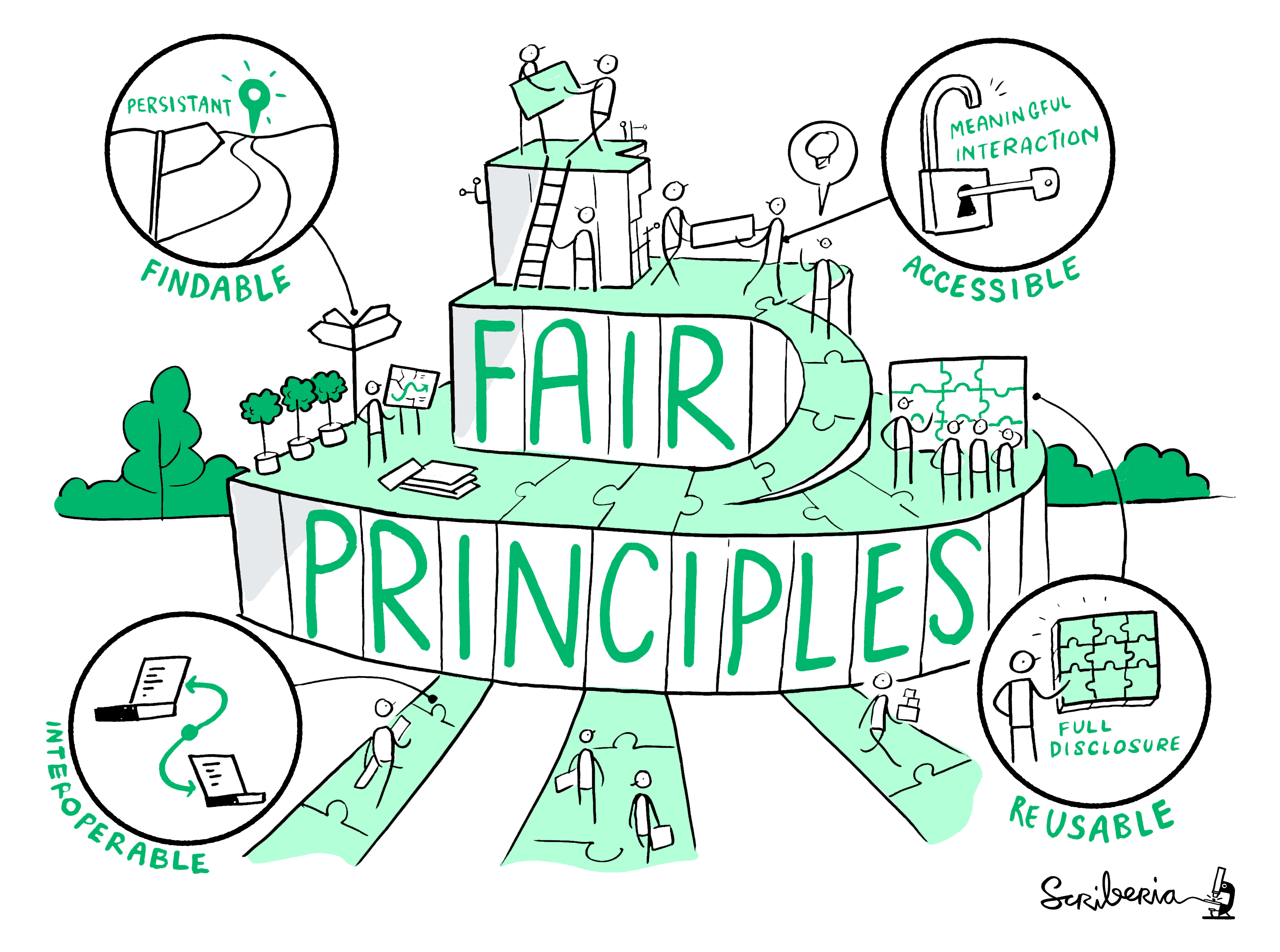
Markdown: What is?
Markdown is a plain text formatting syntax aimed at making writing for the internet easier. The philosophy behind Markdown is that plain text documents should be readable without tags mussing everything up, but there should still be ways to add text modifiers like lists, bold, italics, etc.
It’s possible you’ve encountered Markdown without realizing it. Facebook chat, Skype, and Reddit all let you use different flavors of Markdown to format your messages.
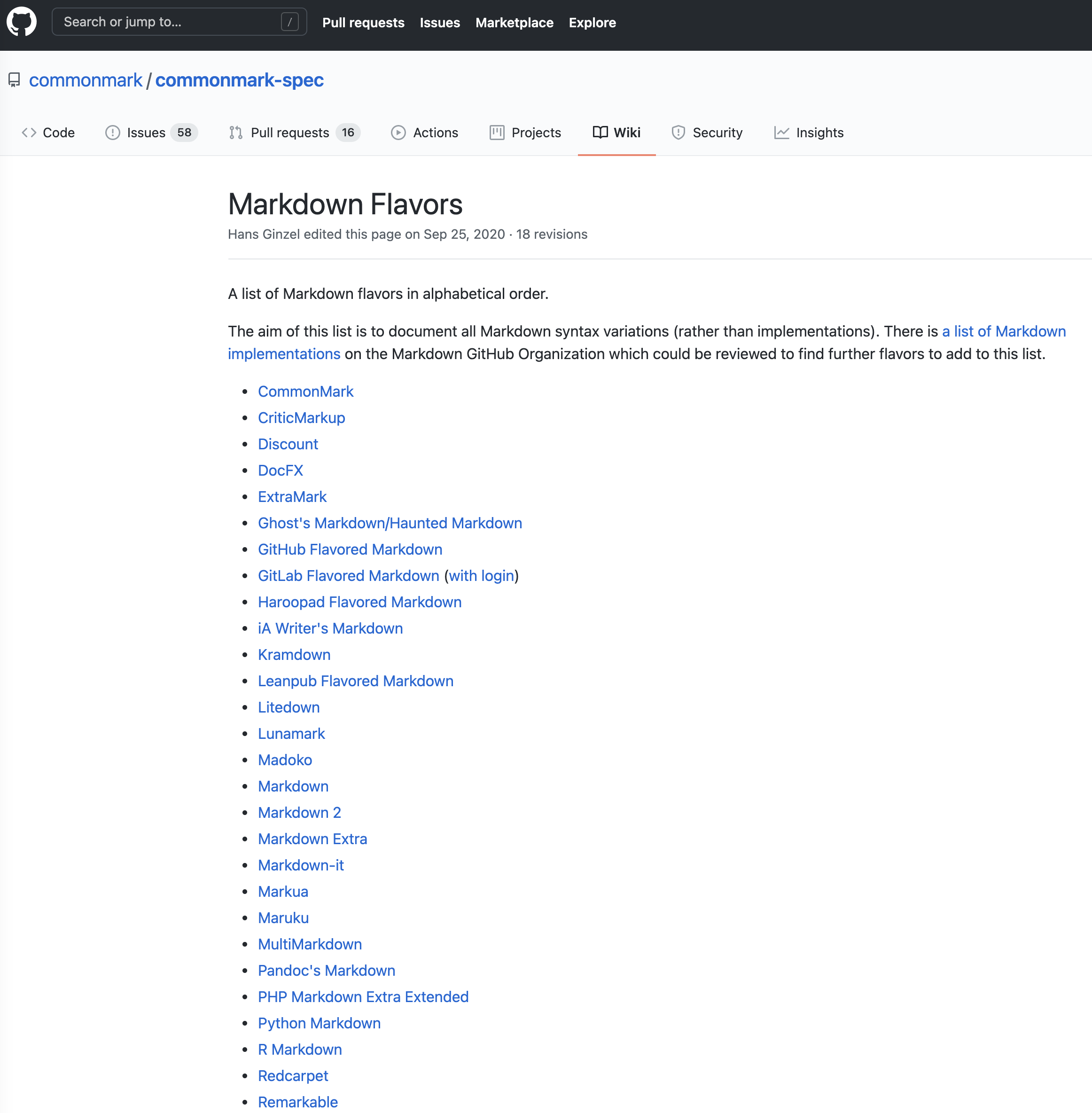
Git: What is?
![]()
A version control system (VCS) tracks the history of changes as people and teams collaborate on projects together.
- Which changes were made?
- Who made the changes?
- When were the changes made?
- Why were changes needed?
According to the latest Stack Overflow developer survey, more than 70 % of developers use Git, making it the most-used VCS in the world.
GitHub: What is?
GitHub is a Git hosting repository that provides developers with tools to ship better code through command line features, issues (threaded discussions), pull requests, code review, or the use of a collection of free and for-purchase apps in the GitHub Marketplace.
GitHub builds collaboration directly into the development process. Work is organized into repositories, where developers can outline requirements or direction and set expectations for team members.

GitHub: How to use?
- A repository, or Git project, encompasses the entire collection of files and folders associated with a project, along with each file’s revision history.
- The file history appears as snapshots in time called commits, and the commits exist as a linked-list relationship, and can be organized into multiple lines of development called branches.
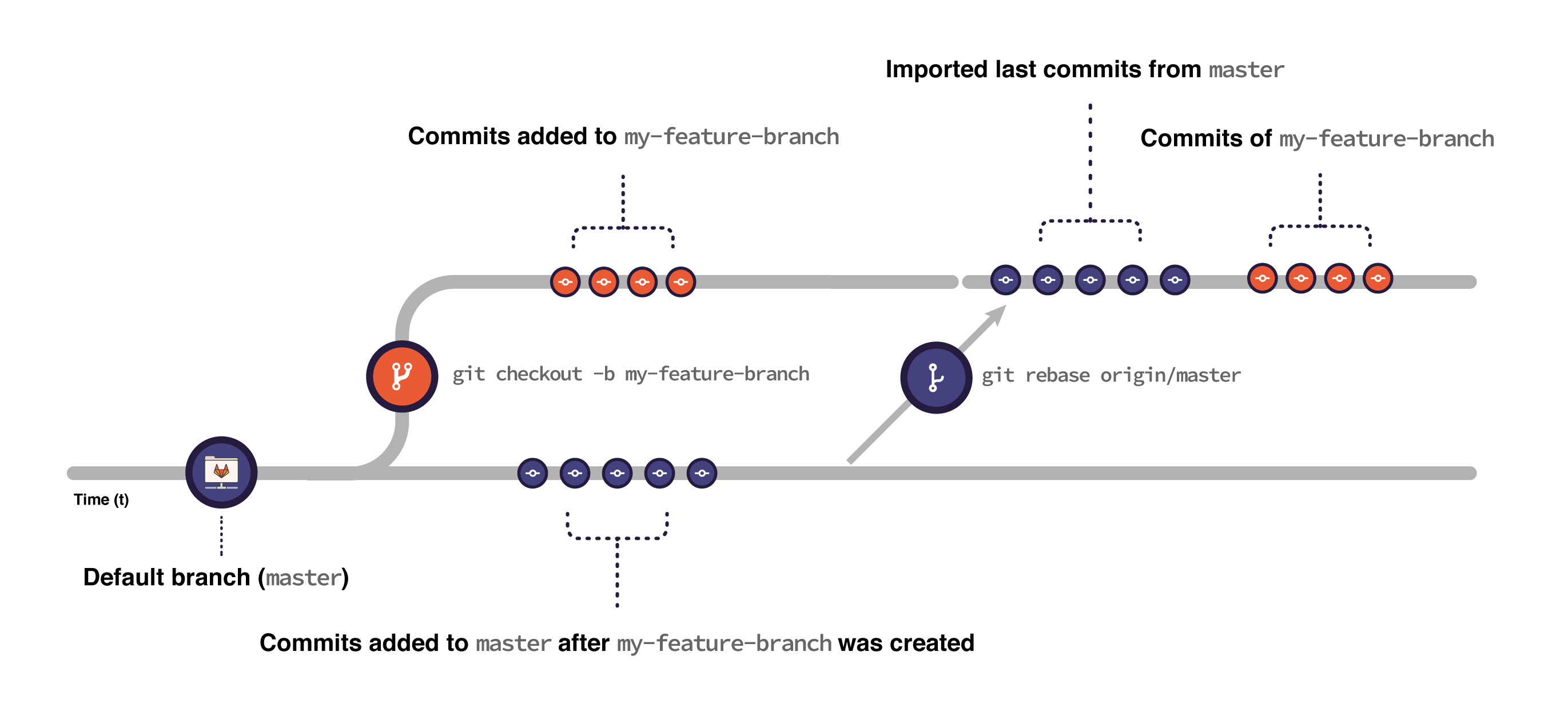
Data Repositories: What is?
A data repository can be defined as a place that holds data, makes data available to use, and organizes data in a logical manner.
Data repositories may have specific requirements concerning subject or research domain; data re-use and access; file format and data structure; and the types of metadata that can be used.
Get a permanent URLs to the repository as a Digital Object Identifier (DOI)

Data Repositories: Examples
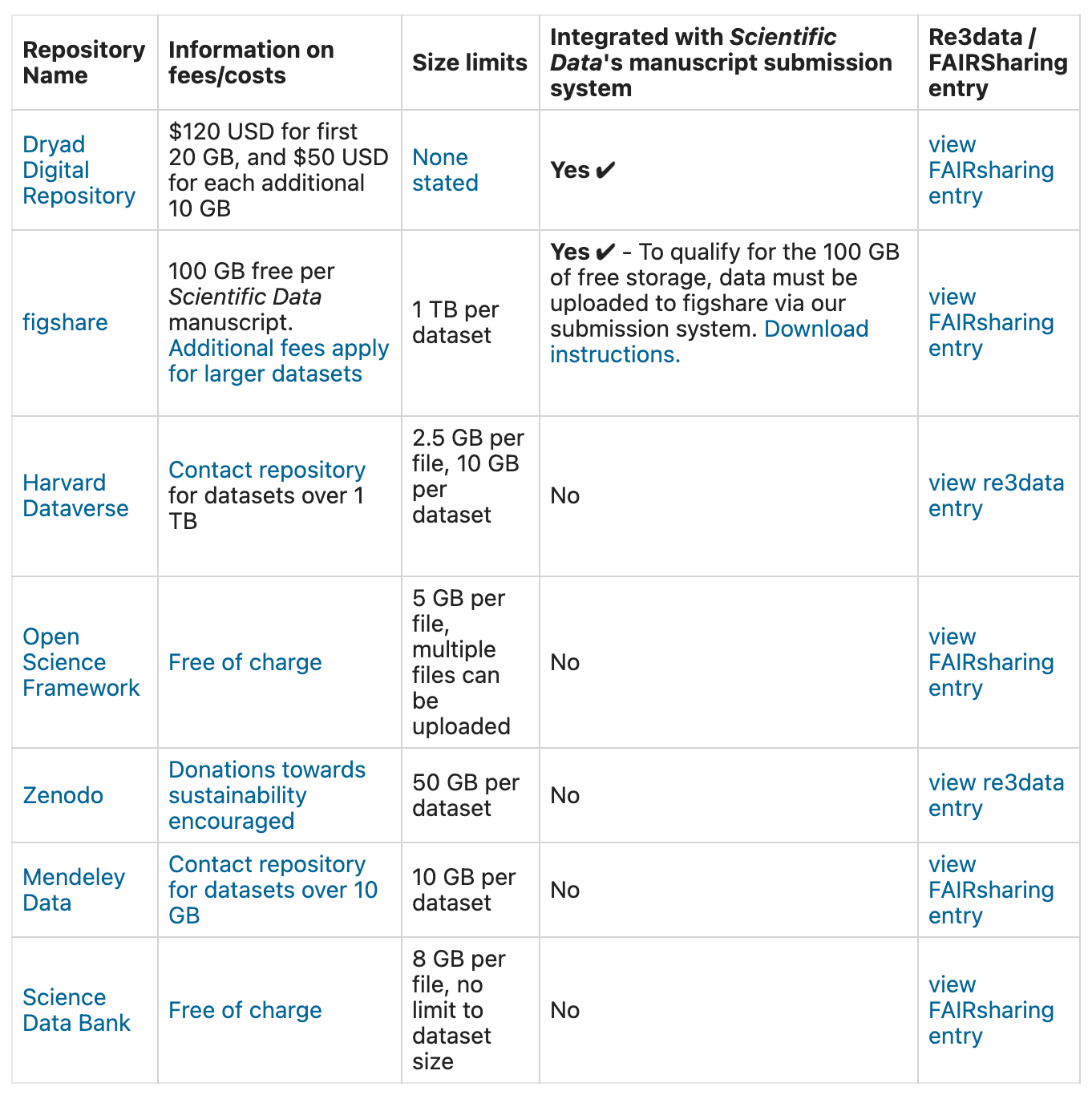
Table: Scientific Data
DRYAD | figshare | Harvard Dataverse | Zenodo
